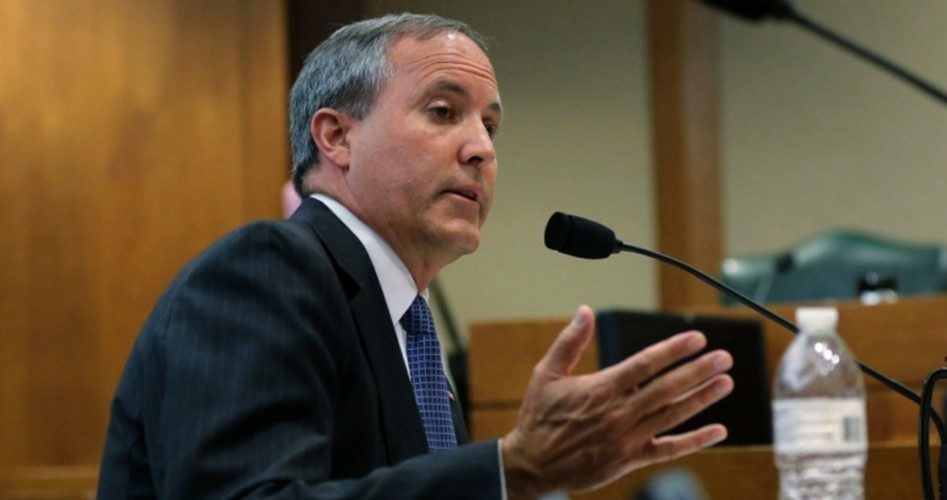
The Texas Attorney General’s Office released a statement on December 29 that it had on that day “asked the U.S. Supreme Court to uphold a federal appeals court ruling to halt the president’s unconstitutional executive action on immigration.”
On November 9, a three-judge panel of the U.S. Court of Appeals for the Fifth Circuit in New Orleans upheld a lower court’s injunction blocking the Obama administration’s actions to shield millions of illegal aliens from deportation. The injunction had originally been granted on February 16 by U.S. District Judge Andrew Hanen of the U.S. District Court for the Southern District of Texas in Brownsville.
Hanen’s ruling came in response to a lawsuit, in the case of Texas v. United States, filed by Texas and 25 other states against the federal government following President Obama’s November 20 announcement that he would unilaterally suspend immigration law as applied to four million illegal immigrants.
The Obama administration subsequently asked Hanen to stay his decision, but the judge denied the request. He also ordered attorneys for the federal government to appear in his court to answer allegations that the administration had misled him about the implementation of new immigration policies that the president and his secretary of Homeland Security ordered in November.
The Department of Justice (DOJ) then filed an appeal on March 12 with the U.S. 5th Circuit Court of Appeals in New Orleans. The appeals court in May made an initial decision to let Hanen’s ruling stand, pending further consideration. However, that decision ruled on only the government’s emergency appeal, and the court tentatively scheduled oral arguments on the DOJ’s overall appeal. As noted above, the court finally upheld Hanen’s ruling on November 9.
Having been rejected at the Circuit Court level, DOJ spokesman Patrick Rodenbush issued the following statement: “The department disagrees with the 5th Circuit’s adverse ruling and intends to seek further review from the Supreme Court of the United States.”
The DOJ filed a 35-page appeal with the Supreme Court on November 20 asking for an expedited review of its plan to grant executive amnesty to more than four million illegal aliens, asserting that the case “warrants immediate review” because of an “unprecedented and momentous” ruling from the U.S. Court of Appeals for the 5th Circuit that upheld a challenge to the government’s “deferred deportation plan” brought by Texas and 25 other states.
“If left undisturbed, that ruling will allow states to frustrate the federal government’s enforcement of the nation’s immigration laws,” the Justice Department said.
Considering that a key argument of the plaintiffs in Texas v. United States was that the administration’s directives, collectively known as “Deferred Action for Parents of Americans and Lawful Permanent Residents” (DAPA), amounts to the government’s failure to enforce the nation’s immigration laws, many who have followed this case from the beginning might find the Justice Department’s language to be quite amusing.
In response to the DOJ’s request for a review of the case, the Texas Attorney General’s Office, as noted previously, asked the Supreme Court to deny such a review. The legal term for this is a “brief in opposition to certiorari.” (Certiorari is a legal device by which the Supreme Court exercises its discretion in selecting the cases it will review.)
In a statement released in conjunction with the brief, Texas Attorney General Ken Paxton (shown) said:
President Obama’s executive action on immigration represents an unprecedented attempt to expand the power of the executive branch. The president alone does not have the authority to grant millions of illegal immigrants a host of benefits — like Social Security and Medicare — which should be reserved for lawful citizens. Rewriting national immigration law requires the full and careful consideration of Congress, and Texas will continue to fight this affront to the rule of law.
In the brief, noted Paxton, Texas cites the president’s own words shortly after issuing the executive action, in which he candidly admitted, “I just took an action to change the law.”
To view the brief in opposition to certiorari, see here.
Photo: AP Images
Related articles:
Obama Administration Prevents Deportation Despite Court Ruling on Amnesty
Obama Admin. to Appeal to Supreme Court on Immigration Executive Action
Appeals Court Upholds Judge’s Injunction Against Obama Amnesty for Illegals
Judge Hanen Sets August 19 Hearing for DHS Officials to Avoid Contempt Charges
Judge Hanen Reprimands Feds for Violating Order Against Executive Amnesty
House Passes Bill Denying Funds for Obama Immigration Case Appeals
Appeals Court Lets Stand Injunction Against Obama Amnesty
After Judge Refuses to Lift Anti-amnesty Injunction, All Eyes Turn to New Orleans
Texas Judge Refuses to Lift Block of Obama Immigration Executive Action
Obama DOJ Appeal of Federal Judge’s Injunction Set for April 17
Texas Group Supports Local Cooperation in Enforcing Immigration Laws
U.S. Judge in Texas May Order Sanctions If Obama Justice Dept. Misled Him
Obama Administration Appeals Ruling Blocking Immigration Amnesty Program
Judge Delays on Obama Request for Stay of Immigration Order Ruling
Obama Administration Asks Judge to Expedite Consideration of Immigration Order Stay
Obama Immigration Amnesty Action Is on Hold as Appeals Are Planned
U.S. Judge: Obama Homeland Security Aiding Criminal Conspiracies



